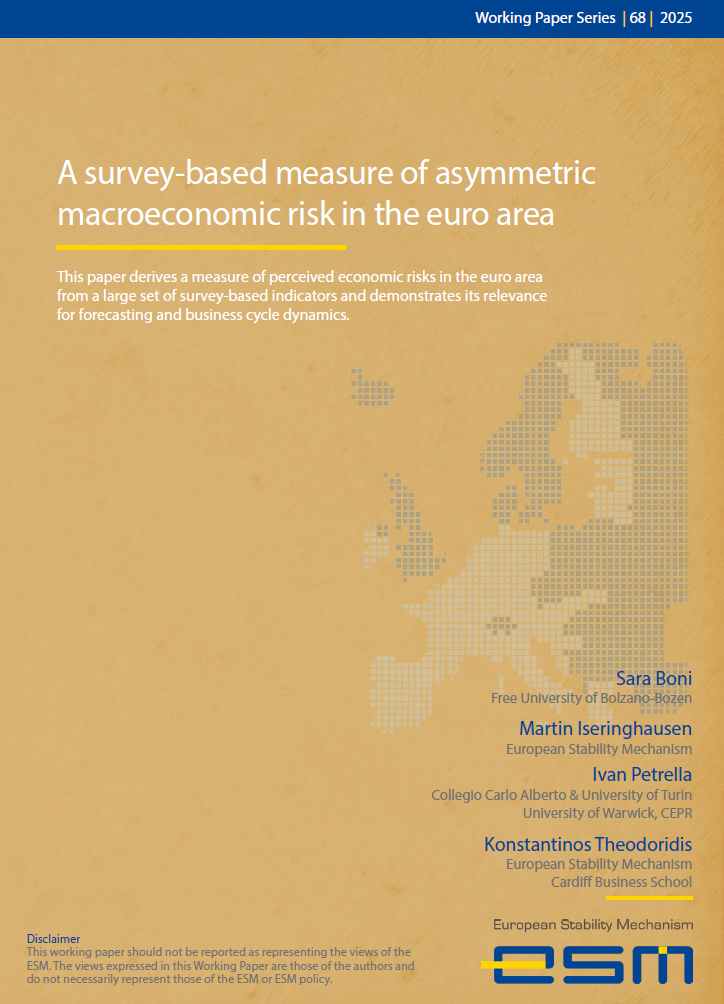Title: A survey-based measure of asymmetric macroeconomic risk in the euro area
Summary: This paper derives a measure of perceived economic risks in the euro area from a large set of survey-based indicators and demonstrates its relevance for forecasting and business cycle dynamics.
Authors: Sara Boni, Martin Iseringhausen, Ivan Petrella, Konstantinos Theodoridis
Abstract: We compute a common factor summarising asymmetries in the expected distributions of a large set of survey-based economic data series for the euro area. This expected skewness factor is distinct from lower-moment factors and can help improve forecasts of risks to economic activity. In addition, within a monthly vector autoregression (VAR), we show that revisions to survey-based expected skewness have macroeconomic and financial implications, even when the average assessment and expected volatility reflected in the surveys remain unchanged. The skewness measure could benefit timely quantitative risk assessments at economic policy institutions to monitor the balance of risks.
Disclaimer: This Working Paper should not be reported as representing the views of the ESM. The views expressed in this Working Paper are those of the author(s) and do not necessarily represent those of the ESM or ESM policy. No responsibility or liability is accepted by the ESM in relation to the accuracy or completeness of the information, including any data sets, presented in this Working Paper.
Keywords: Economic sentiment, principal components, quantile regression, skewness
JEL codes: C22, C38, E66
